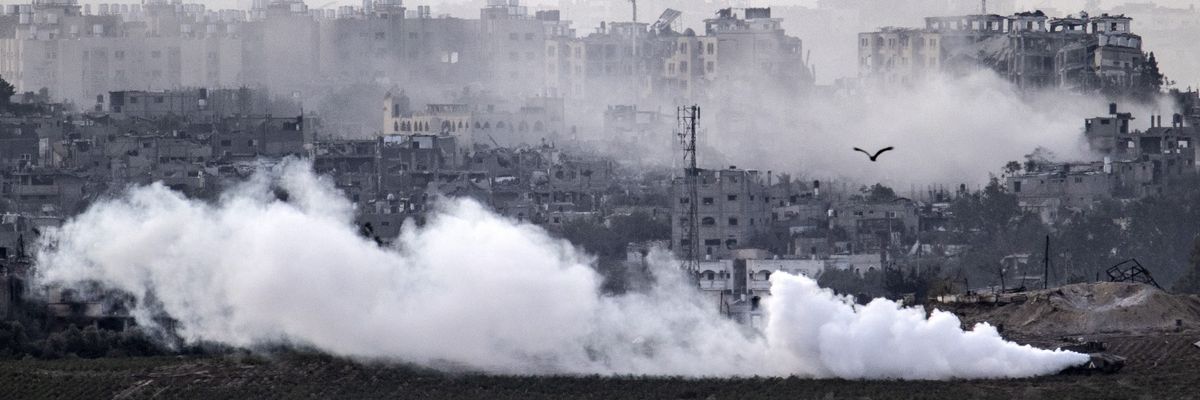It was Earth Day on Monday, and the U.S. and the world seem determined to ignore the climate crisis and instead invest in war. That’s a huge mistake.
This weekend, the House passed $95 billion in new war and related spending, which will now go to the Senate. Also on Monday, the Stockholm International Peace Research Institute (SIPRI) released new data showing that world military spending totaled $2.44 trillion in 2023, an increase of 6.8% from the previous year.
This April also marked 75 years since the North Atlantic Treaty Organization (NATO) was created. NATO, at its core, is a military alliance. It conducted military exercises during the Cold War and played a pivotal role in the U.S. war in Afghanistan.
What if we had governments and communities that center care and responsibility instead of deterrence and aggression?
All that war has come at a steep price for our climate, even while fossil fuel dependence and militarism benefit from the same power structures. The climate emergency is driven by fossil fuel use that extracts from the land’s resources, including its people. Militarism utilizes war and weapons and puts up walls and borders in service of political power and economic growth.
Meanwhile, the future of both climate and war is largely shaped by domestic and international spending. And military spending has traditionally been greater than any genuine climate investments.
Here in the U.S., the military and its support systems take up the majority of federal discretionary spending. The National Priorities Project calculated that in 2023 the average U.S. taxpayer contributed more than $3,700 for the Pentagon and war, but only $11 for renewable energy and energy efficiency.
The devastation extends beyond the direct destruction and horror of war. The U.S. military is the single largest institutional emitter of greenhouse gases in the world. U.S. military bases hold toxic legacies in the land and waters and impact long-term public health, such as the “forever chemicals” PFAS contaminating water sources around bases.
On top of it all, if we look at who is affected by the climate crisis and militarism, they are poor communities that are Black and brown. In the U.S., Black, Hispanic and Latino, Indigenous, undocumented, and poor people bear the brunt of harm from climate impacts, including deaths and injuries from natural disasters. Militarism compromises these communities as they are also the ones who are disproportionately policed, incarcerated, detained, and deported.
This Earth Week, we need bold new solutions for the climate crisis and peace. What if we had an alliance that was for genuine climate solutions? An alliance that wasn’t modeled off of NATO, but one that is inclusive and guided by Indigenous and feminist resilience and solutions across movements? What if we had governments and communities that center care and responsibility instead of deterrence and aggression? What if we had a federal budget beyond the enforcement paradigm? This is a vision for our Earth worth celebrating.

